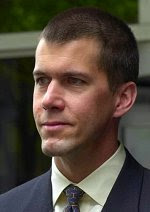 Flying somewhat beneath the radar screen of the lynch mob that is fascinated with watching former Enron CEO Jeff Skilling imprisoned for the rest of his life is the case of former Enron Broadband executive, Kevin Howard.
Flying somewhat beneath the radar screen of the lynch mob that is fascinated with watching former Enron CEO Jeff Skilling imprisoned for the rest of his life is the case of former Enron Broadband executive, Kevin Howard.
As you may recall, Howard was tried and convicted of five counts of conspiracy, wire fraud, and falsifying the books and records under extremely prejudicial circumstances at the end of the Lay-Skilling trial. Subsequent to Howard’s conviction, however, the Fifth Circuit issued its decision in the Nigerian Barge case, which formed the basis of Howard’s motion to vacate his conviction on all charges.
The Enron Task Force put off responding to Howard’s motion to vacate for several weeks hoping that the Fifth Circuit might reconsider its Nigerian Barge decision. However, the Fifth Circuit recently declined to do so, so the Task Force was required to buck up and finally respond to Howard’s motion. In an uncharacteristic moment of clarity, the Task Force essentially admits in its response that Howard’s entire conviction must be vacated:
The United States concedes that under [the Fifth Circuit’s Nigerian Barge decision] the conduct that forms the basis for Howard’s convictions on Counts One through Four does not fall within the honest services provision. Because a reviewing court cannot determine whether the jury relied on the honest services theory to convict Howard, his convictions on those counts must be vacated.
The Task Force’s response goes on to argue unpersuasively that Howard’s conviction on one count of falsifying Enron’s books and records should not be vacated, but it’s clear that the Task Force does not have much confidence in its position on that count. I will be surprised if U.S. District Judge Vanessa Gilmore does not throw out Howard’s conviction on all counts.
Thus, the Task Force’s response underscores what I have been saying for almost three years now. The true criminal activity in regard to the Enron was limited to former CFO Andrew Fastow and a few of his close associates — such as Ben Glisan and Michael Kopper — who effectively embezzled millions from Enron.
As with Jeff Skilling, Kevin Howard didn’t embezzle a dime from Enron and was simply trying to do the best job he could of preserving value in Enron Broadband under difficult market conditions.
Violation of honest services charges are supposed to address the situation where an executive takes a kickback or a bribe from a third party in violation of his fiduciary duty to his company. In Howard’s case — as with the case against Jeff Skilling — the Task Force simply used those inapplicable charges as a means to appeal to juror resentment against anything having to do with Enron to obtain a conviction.
As the Fifth Circuit panel observed in its decision in the Nigerian Barge case, if you start from the premise that a defendant is guilty of a crime, then it’s far easier to conclude that the defendant is guilty of the crime. It’s far tougher to prove it honestly.

It is ashame that the government cannot get past themselves and vacate the fifth count. I look forward to the day that Judge Gilmore wraps this up. Thanks, Tom, for your coverage of this very happy day.